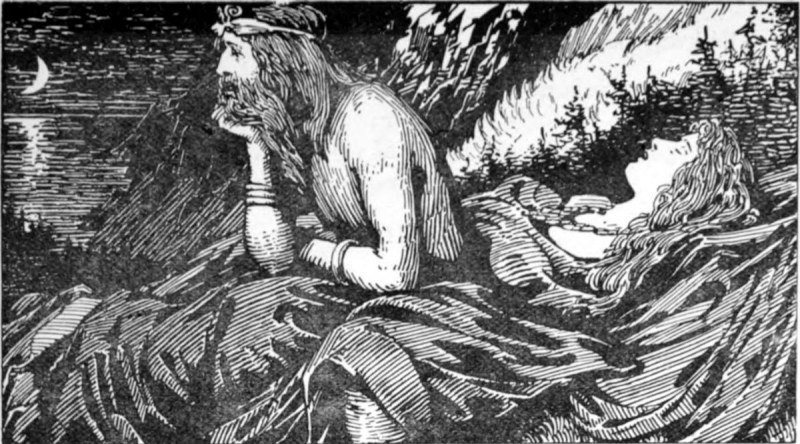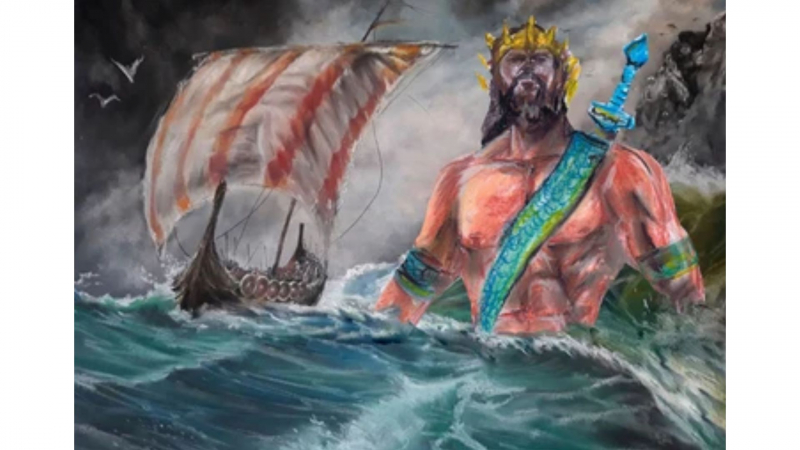Njörðr

As the father of Freya and Freyr and a prominent member of the Vanir gods, Njörðr was revered as the God of Wealth, Seafaring, and Fertility. As one of three gods invoked in the 14th-century Hauksbók ring oath and one of the most famous Norse gods, Njörðr is mentioned in the Poetic Edda, which was compiled in the 13th century from earlier traditional sources, the Prose Edda, written in the same century by Snorri Sturluson, Heimskringla, which was also written by the same author, and numerous Scandinavian place names. The veneration of Njörðr continued until Norwegian folklore of the 18th or 19th century, where the god is referred to as Njörðr and thanks for a plentiful catch of fish.
Njörðr and two other people were sent to Asgard as a sign of peace during the conflict between the Aesir and Vanir gods. He was housed in Naotun's dwelling by the sea and was made an honorary member of the Aesir gods. Their marriage did not endure long because Skadi, a giantess, and they both disliked leaving their homes to live in one location together. The cold mountains where Skadi lived were intolerable to Njörðr , and Skadi felt the same way about Njörðr ‘s beachfront home. The Norse people yearned to be as wealthy as Njörðr since he was one of the most prosperous gods of all time.
As a result of his name appearing in so many place names, Njörðr has been the topic of extensive scholarly discussion and thought. These discussions and theories frequently link him to the hero Hadingus and the far earlier documented Germanic goddess Nerthus. Modern anglicizations of Njörr include Njord, Njoerd, and Njorth.











